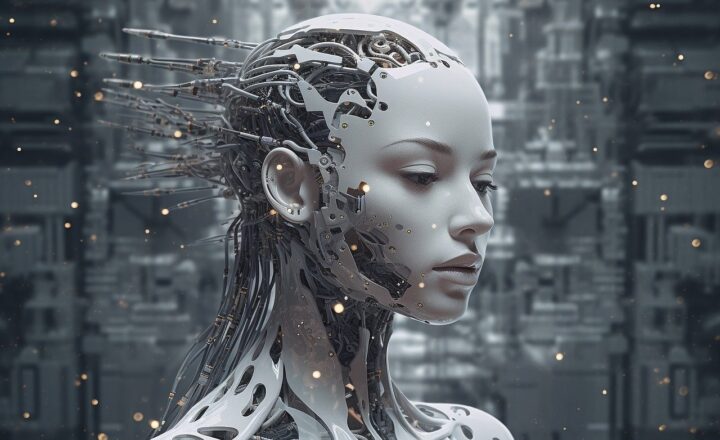The Rise of Artificial Intelligence: How It Will Shape Our Lives Over the Next Decade
November 17, 2024

Artificial Intelligence (AI) has rapidly evolved from a futuristic concept into a vital component of our daily lives, influencing various sectors and industries. As we stand on the brink of the next decade, the potential of AI to reshape our personal and professional environments is immense. This article delves into the rise of AI, exploring its current applications, future trends, implications for society, and the ethical considerations that accompany this transformative technology.
1. Understanding Artificial Intelligence
Before we dive into the impacts of AI, it is essential to understand what artificial intelligence encompasses. AI refers to the simulation of human intelligence in machines programmed to think and learn like humans. This includes systems that can perform tasks associated with human cognition such as understanding natural language, recognizing patterns, solving problems, and making decisions.
Types of AI include:
- Narrow AI: Designed to handle specific tasks (e.g., virtual assistants like Siri or Alexa).
- General AI: A more advanced form that can understand and reason across a wide range of tasks, akin to human intelligence (still theoretical).
AI technologies include machine learning, natural language processing, robotics, and computer vision, which together are transforming how we work, communicate, and make decisions.
2. Current Applications of AI
Today, AI is integrated into various industries, enhancing efficiency and productivity. Here are some notable applications:
- Healthcare: AI algorithms analyze medical data, assisting in disease diagnosis, personalized treatment plans, and drug discovery. Machine learning models can predict patient outcomes, while chatbots provide immediate assistance to patients.
- Finance: Financial institutions utilize AI for fraud detection, algorithmic trading, credit scoring, and personalized customer service. AI systems analyze vast datasets to identify anomalous patterns that may signify fraudulent activities.
- Transportation: Self-driving cars and AI-driven traffic management systems aim to improve safety and efficiency on the roads. Companies like Tesla and Waymo are leading the charge in autonomous vehicle technology.
- Retail: AI powers personalized shopping experiences by analyzing consumer behavior and preferences. Retailers use AI for inventory management, demand forecasting, and creating tailored marketing strategies.
- Education: AI can provide personalized learning experiences, with adaptive learning platforms that change content according to a student’s skill level. AI-powered tutoring systems enhance student engagement and learning outcomes.
These applications demonstrate AI’s multifaceted impact across industries, and the continued evolution of this technology will likely lead to even more innovative uses in the decade ahead.
3. The Future of AI: Key Trends to Watch
As we look to the future, several trends indicate how AI will further shape our lives over the next decade:
- Increased Automation: AI will automate routine tasks across various sectors, allowing humans to focus on more strategic and creative roles. This increase in automation will likely lead to job displacement, necessitating workforce reskilling and upskilling.
- Enhanced Personalization: Companies will leverage AI to create more personalized experiences in marketing, customer service, and product recommendations. AI technologies will analyze user behavior and preferences to tailor offerings and communications.
- Greater Conversational AI: Natural Language Processing (NLP) will continue to improve, resulting in more sophisticated chatbots and virtual assistants that can engage in human-like conversations and offer assistance in real time.
- AI Ethics and Regulations: As AI becomes more pervasive, discussions around its ethical use will intensify. Governments and organizations will need to establish frameworks to ensure equitable and responsible AI deployment.
- Collaboration between Humans and Machines: The role of AI as a collaborative partner in decision-making is likely to grow. AI can provide insights and analysis, enabling humans to make more informed choices.
These trends highlight the growing influence of AI in both personal and professional contexts, emphasizing the need for adaptability and ongoing education.
4. The Implications for Society
As AI continues to integrate into our society, it presents various implications that we must collectively address:
- Job Displacement vs. Job Creation: While AI may lead to job losses in certain sectors, it will also create new job opportunities. The challenge lies in transitioning the workforce to fill these new roles through education and retraining programs.
- Privacy Concerns: With the increased reliance on data, AI systems may raise concerns about privacy and data security. Striking a balance between leveraging data for AI-driven benefits and protecting individual rights will be crucial.
- Bias in AI Algorithms: AI systems are only as good as the data used to train them. Addressing bias in training data is essential to prevent perpetuating stereotypes and ensuring fair outcomes for all users.
- Ethical Use of AI: Establishing ethical guidelines for AI development and deployment will be critical. Organizations and developers must prioritize the responsible and equitable use of AI technologies to avoid potential harm to society.
- Transforming Education: Education systems will need to adapt to equip students with skills necessary for an AI-driven future, including critical thinking, creativity, and digital literacy.
As AI continues to evolve, we must engage in open discussions about its societal impact, ensuring that we harness its potential for the overall betterment of humanity.
5. Concluding Thoughts: Embracing the AI Revolution
The rise of artificial intelligence heralds a new era that promises to redefine how we live and work. By understanding its capabilities, embracing its potential, and addressing the ethical considerations that come with it, we can navigate this transformation successfully.
The next decade will see AI become an integral part of our lives, enhancing efficiency and convenience while presenting challenges that require our collective attention. As individuals, businesses, and societies, we must be proactive in shaping the future of AI to foster innovation, inclusivity, and ethical conduct. Through collaborative efforts, we can ensure that AI serves as a powerful tool to improve the human experience, paving the way for a better tomorrow.







